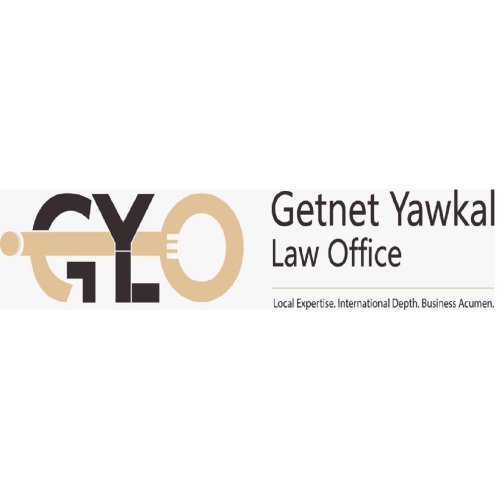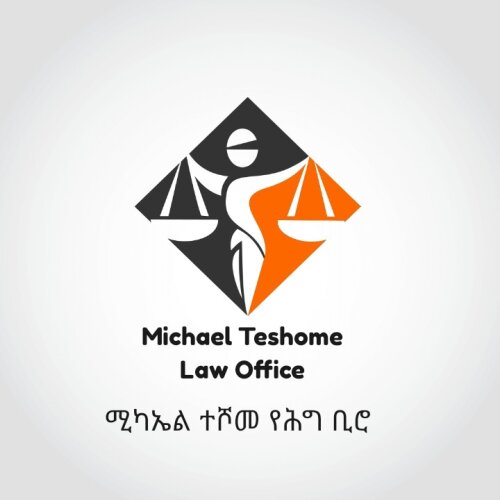Best Class Action Lawyers in Ethiopia
Share your needs with us, get contacted by law firms.
Free. Takes 2 min.
Or refine your search by selecting a city:
List of the best lawyers in Ethiopia
About Class Action Law in Ethiopia
Class action lawsuits in Ethiopia are a relatively new development in its legal system, given the country's civil law foundation. A class action allows a group of people with similar legal grievances to bring a collective lawsuit to court, potentially increasing efficiency and reducing costs. The framework for class actions in Ethiopia is still evolving, as influenced by the regional legal systems and international standards. Understanding this can be pivotal for those facing collective legal challenges.
Why You May Need a Lawyer
Engaging a lawyer for a class action lawsuit in Ethiopia can be crucial for several reasons. Common situations include:
- When a large group of individuals is affected by a single entity’s actions, such as environmental damage or corporate misconduct.
- When individuals seek to pool resources to challenge an entity with greater legal power or financial strength.
- When individuals require expert navigation through the complexities of the Ethiopian legal system to ensure their case is heard and represented adequately.
A lawyer can provide invaluable expertise in managing complex legal documentation, court representation, and strategy formulation that aligns with local laws.
Local Laws Overview
The legal framework concerning class actions in Ethiopia is rooted in the Civil Code, with modifications influenced by international practices. Key aspects include:
- Legislation regarding collective redress mechanisms is underdeveloped, requiring adaption of existing civil procedure rules.
- A limited number of cases have established precedents, making it a frontier area of legal practice.
- Judicial processes may vary significantly by region, due to the country's federal structure.
Understanding these points is critical for any group considering pursuing a class action lawsuit.
Frequently Asked Questions
What constitutes a class action lawsuit in Ethiopia?
A class action lawsuit involves a group of claimants with similar grievances filing a single lawsuit to be addressed collectively, especially in situations of wide-ranging harm or injury.
Is there a limit to the number of participants in a class action?
Currently, there is no specific limit stipulated, but practicality and the nature of the grievance often determine participant numbers.
How is a class action case initiated in Ethiopia?
Initiation involves filing a claim in a competent court with documented evidence of the common grievance and its impacts on all participants.
Who represents the class in a class action lawsuit?
An appointed representative or legal counsel acts on behalf of all class members, typically agreed upon by the participants or designated by the court.
What costs are involved in filing a class action lawsuit?
Legal fees, court costs, and potential expert witness fees can be involved, often shared among participants. Discussing fee structures with a lawyer is advisable before proceeding.
How long does a class action lawsuit typically take in Ethiopia?
Due to the complexity and potential size, class actions can take months to years, depending on the court's schedule and the case's intricacy.
Can I opt-out of a class action once I have joined?
Yes, individual members generally have the option to opt-out, especially if they wish to pursue separate legal action or disagree with the class’s strategy.
What kind of outcomes can a class action lawsuit achieve?
Outcomes can range from financial settlement, policy changes, to executive actions depending on the nature and objective of the lawsuit.
Are Ethiopian courts likely to enforce class action settlements?
Yes, provided the settlement agreement complies with local laws and is sanctioned by the court as being fair and reasonable.
Can foreign nationals participate in class action lawsuits in Ethiopia?
This is generally possible if the grievance pertains to harm incurred within Ethiopian jurisdiction or by an Ethiopian entity.
Additional Resources
For additional guidance on class actions in Ethiopia, consider consulting the following resources:
- The Ethiopian Bar Association: Offers referrals and resources for legal practitioners specialized in class action suits.
- The Federal Courts of Ethiopia: Information on procedural aspects and court jurisdictions.
- Human Rights Organizations: Often involved in significant class action proceedings, providing advocacy and guidance.
Next Steps
If you believe a class action is the suitable course of action for your situation, consider taking the following steps:
- Gather detailed evidence and documentation of the grievance affecting the potential class.
- Consult with a legal expert familiar with class actions in Ethiopia to assess the viability of your case.
- Engage with other affected parties and organize a representative legal action with professional guidance.
- Explore potential funding mechanisms for managing legal costs.
These steps can effectively position your group to navigate the class action process within Ethiopia successfully.
Lawzana helps you find the best lawyers and law firms in Ethiopia through a curated and pre-screened list of qualified legal professionals. Our platform offers rankings and detailed profiles of attorneys and law firms, allowing you to compare based on practice areas, including Class Action, experience, and client feedback.
Each profile includes a description of the firm's areas of practice, client reviews, team members and partners, year of establishment, spoken languages, office locations, contact information, social media presence, and any published articles or resources. Most firms on our platform speak English and are experienced in both local and international legal matters.
Get a quote from top-rated law firms in Ethiopia — quickly, securely, and without unnecessary hassle.
Disclaimer:
The information provided on this page is for general informational purposes only and does not constitute legal advice. While we strive to ensure the accuracy and relevance of the content, legal information may change over time, and interpretations of the law can vary. You should always consult with a qualified legal professional for advice specific to your situation.
We disclaim all liability for actions taken or not taken based on the content of this page. If you believe any information is incorrect or outdated, please contact us, and we will review and update it where appropriate.
Browse class action law firms by city in Ethiopia
Refine your search by selecting a city.

















